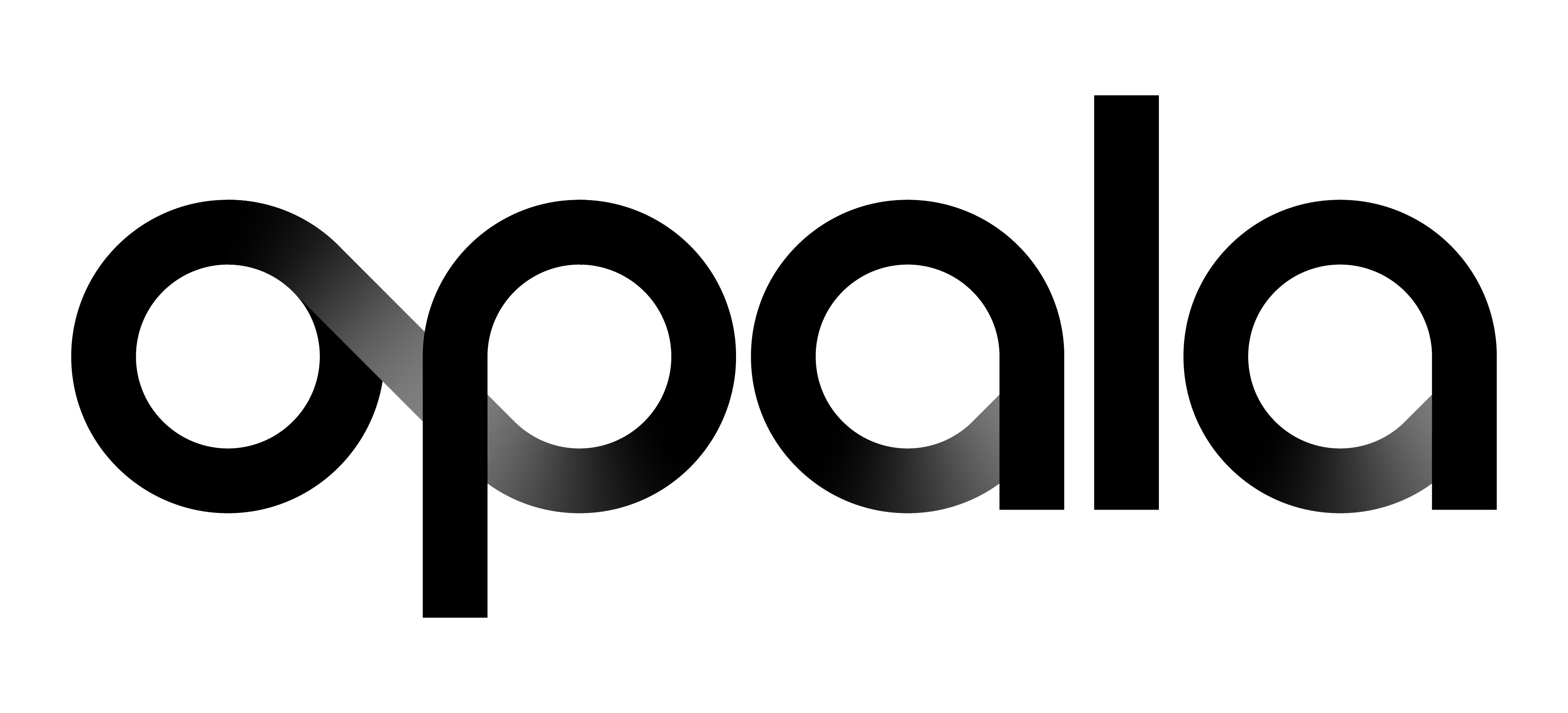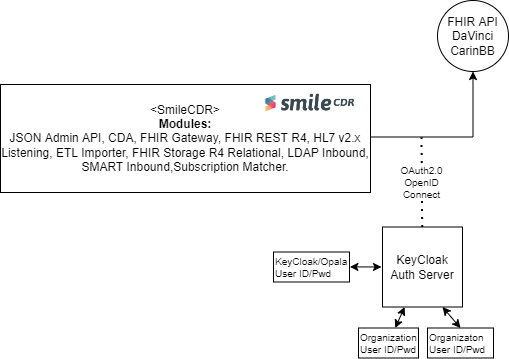Release Notes: Enterprise 2022.2.0.1
This release includes two options for communicating with Opala to the Application Gallery; adds the PractionerRole resource to ATR; makes improvements to the Bulk Export feature; introduces unirosters; adds security with group access permissions; improves searches made using a group ID; creates provider accounts; and adds two new endpoints.
Application Gallery Updates
Links on App Gallery page.
Two new links have been added to the application gallery that enable you to contact Opala directly.
The Contact Us to Request an App link enables members who wish to use a third-party application that does not appear in the Application Gallery to contact Opala and request that the application be added to the Gallery. When you select this link, a new email message is created with the correct Opala email address already populated. Just enter the information about the app you want to include, such as:
- The application's name and website
- Any comments you want to include
- Your contact information
Send the email to Opala. Opala then contacts the application's developer to coordinate adding the app to Opala's Gallery.
The Contact Our Helpdesk link enables you to communicate directly with Opala's helpdesk to resolve any issue you may have. This link opens your email program with Opala's developer support address already entered in the To field.
Member Attribution (ATR) API Updates
PractitionerRole Endpoint Added to ATR API
The PractitionerRole endpoint has been added to the Member Attribution (ATR) API and is accessible using the following URL:
https://api.in.opalahealth.io:45000/PractitionerRole
The PractitionerRole profile represents a practitioner associated with a specific organization who in turn is attributed to a specific patient within the Member Attribution List.
For more information about the PractitionerRole profile, see PractitionerRole (ATR) in the Opala documentation set.
Bulk Export Improvements
Opala now provides a way to query and export the Practitioner, Practitioner Role, Organization ATR resources. These resources were not originally included in the Bulk Export function in Smile.
Unirosters
Opala now delivers unirosters (i.e., rosters of eligible members) which conform to ATR IG as much as possible for use with Member Attribution (ATR). A unified roster is a roster that has been assembled using various criteria (usually agreed upon by the parties working together in ATR) and compiled into a single unit. A uniroster equates to a Member Attribution List.
Unirosters are useful for two purposes:
- Value-based contract attribution
- Including patients in clinical data exchange
Opala uses ETL (Extract, Transform, Load) operations to create the unified rosters and make them available.
ATR Group Access Permissions
Opala uses KeyCloak to coordinate security for ATR. KeyCloak hosts an Opala ID where providers can be supplied with an account and assigned to a security group. This group gives the provider access to ATR groups.
Group ID
- In order to query and export the Practitioner, Practitioner Role, and Organization resources which are not, included in the Bulk Export function in Smile CDR, Opala has added two new search parameters. These parameters are:
- name. A token search parameter for the group.
- ext-attributedProvider. A reference search parameter for group
To address Smile CDR limitations, Opala created an alternate set of requests to retrieve ATR list related FHIR resources.
Use the following syntax to retrieve the ATR list resources:
Group/{id}/$export?_type=Group,Patient,Coverage,RelatedPerson
Use the following syntax to retrieve Practitioner, PractitionerRole, Organization, and Location FHIR resources:
$export?_outputFormat=application%2Ffhir%2Bndjson&_type=Practitioner,Group,Organization,PractitionerRole,Location&_typeFilter=PractitionerRole%3F_has%3AGroup%3Aext-attributedProvider%3Aname%3D{GroupName}&_typeFilter=Organization%3F_has%3APractitionerRole%3Aorganization%3A_has%3AGroup%3Aext-attributedProvider%3Aname%3D{GroupName}&_typeFilter=Practitioner%3F_has%3AGroup%3Aext-attributedProvider%3Aname%3D{GroupName}&_typeFilter=Group%3Fname%3D{GroupName}&_typeFilter=Practitioner%3F_has%3APractitionerRole%3Apractitioner%3A_has%3AGroup%3Aext-attributedProvider%3Aname%3D{GroupName}&_typeFilter=Location%3F_has%3APractitionerRole%3Alocation%3A_has%3AGroup%3Aext-attributedProvider%3Aname%3D{GroupName}&_typeFilter=Organization%3F_has%3AGroup%3Aext-attributedProvider%3Aname%3D{GroupName}
- When retrieving information that includes a Group ID, you must add the following keys to the header:
- Key = Prefer
- Value = respond-async
If you do not add these keys, the request returns a processing error.
Provider Account
Opala has created provider accounts for both MultiCare and Providence. These accounts can be used to test ATR data exchange and potentially to transfer ATR data between a producer (usually a payer) and a consumer.
New Endpoints
The Opala ATR API can be accessed at this URL:
https://api.opalahealth.io:45000/atr/v1/fhir/r4
Provider authorization can be accessed at this URL:
https://api.opalahealth.io:45000/v3/oauth/op


